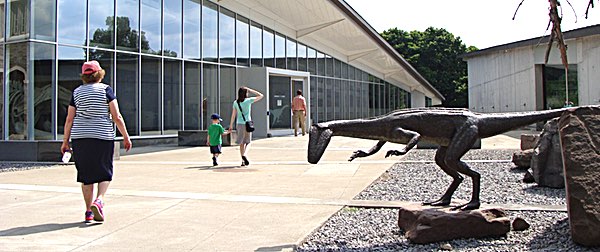- By Office of Congressman Tom Reed
- Around Town
 Print
Print 
Washington, DC - Congressman Tom Reed announced Wednesday that two Museums for America Grants from the Institute of Museum and Library services that will benefit New York's 23rd Congressional District. The grants, as part of the Museums for America Grants, will be awarded to the Museum of the Earth at the Paleontological Research Institution and the Sciencenter in Ithaca, NY. The Museum for America grant program supports projects that increase and enhance the experience and service provided to the public. Categories for this program include: learning experience, community anchors and collections and stewardship.
"Grants such as these allow museums to expand and continue to provide excellent services for visitors and community members," said Reed. "Expanding access to education and information is something we care about and we are proud to deliver this grant for people who both live in and visit Ithaca."
Sciencenter will received $202,163 to strengthen rural engagement in Science, Technology, Engineering and Math (STEM). This will include hands-on and inquiry based STEM activities for families and children. The museum will connect with Moravia Central School District and Groton Public Library in partnership to facilitate the STEM project, bringing STEM education to rural audiences in new and exciting ways.
"The Sciencenter is delighted to have been selected to receive this funding from the Institute for Museum and Library Services," said Dean Briere, Sciencenter executive director. " In 2018, our Board of Trustees approved a new Strategic Framework that included an emphasis on engaging rural audiences. This funding will allow us to co-develop programs with new and existing partners in these rural areas."
The Museum of the Earth at the Paleontological Research Institution will receive a grant of $93,450. The funds will be used to increase public access to specimens in the Cornell University Malacology Collection. Malacology pertains to the study of mollusks. These specimens will also physically be added to the museum's existing modern mollusk collection. The over 28,000 specimens will be publicly available online on a searchable database.
"This is really what collections do," said Dr. Gregory Dietl, director of collections. "It really is not what you have in the drawers or in the collections; it's what you send out to the world. This grant will really allow us to fulfill that goal."
v15i35
